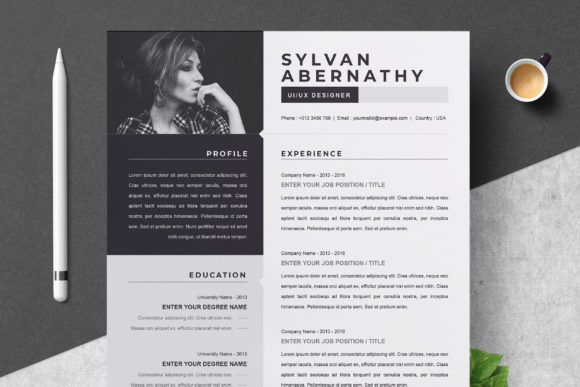One Page Resume: A Concise Snapshot
A one-page resume is a brief overview of your professional background, skills, and achievements. Here are the advantages and considerations of opting for a one-page resume:
Advantages:
Easy to Read: Hiring managers often review numerous resumes, so a one-page format is easier and quicker to read.
Focus on Key Information: It forces you to prioritize the most relevant and impressive information, ensuring that your standout achievements are front and center.
Ideal for Entry-Level Candidates: If you're just starting your career, a one-page resume is usually sufficient, as you likely have fewer experiences in detail.
Maintains Attention: It helps in maintaining the reader's attention span, ensuring they absorb the most important details.
Considerations:
Limited Space: You'll need to be selective in what you include, which can be challenging if you have a diverse skill set or numerous achievements.
Less Detail: You might not have enough room to go into great detail about your experiences, which could be a drawback if you have significant accomplishments.
Example of a One-Page Resume:
[Header with Contact Information]
[Summary Statement]
[Key Skills]
[Education]
[Work Experience]
Job 1
Job 2
Job 3
[Certifications]
[Relevant Projects]
[Additional Information]
Two-Page Resume: In-Depth Exploration
A two-page resume provides more space to delve into your work history, skills, and accomplishments. Let's explore the advantages and considerations of opting for a two-page resume:
Advantages:
Comprehensive Detail: It allows you to provide a thorough account of your work history, including specific achievements and responsibilities.
Showcases Diverse Experience: If you've had a varied career with multiple roles or have worked on complex projects, a two-page resume can do justice to your experiences.
Emphasizes Skills and Achievements: You can allocate more space to highlight your skills, certifications, and significant accomplishments.
Considerations:
Risk of Overloading Information: With more space comes the temptation to include unnecessary or less relevant information, potentially overwhelming the reader.
Requires Strong Organization: A two-page resume needs careful organization to ensure that the most important details are still prominent.
Example of a Two-Page Resume:
[Header with Contact Information]
[Summary Statement]
[Key Skills]
[Education]
[Work Experience]
Job 1
Job 2
Job 3
[Certifications]
[Relevant Projects]
[Additional Information]
[Page 2]
[Professional Development]
[Publications]
[References]
[Volunteer Work]
Choosing the Right Length for Your Resume
The decision between a one-page and two-page resume ultimately depends on your unique circumstances:
Early Career Professionals or Career Changers: If you're just starting or changing fields, a one-page resume is usually sufficient.
Mid-Level to Senior Professionals: If you have several years of experience or a diverse skill set, a two-page resume might be more appropriate to adequately represent your accomplishments.
Academic or Research Positions: In academia or research fields, a CV (Curriculum Vitae) which can be several pages long, is more common.
Considering the Industry and Role
Creative Fields vs. Traditional Industries: Creative industries like design or advertising may appreciate a slightly longer, visually appealing resume. On the other hand, more traditional industries like finance or law often prefer concise, one-page resumes.
Executive Positions: Senior-level executives with extensive experience may find a two-page resume necessary to adequately showcase their accomplishments and leadership roles.
Academic and Research Roles: In academia, a Curriculum Vitae (CV) is commonly used, which can be several pages long. It includes detailed information on publications, research projects, and academic history.
Balancing Detail with Relevance
Prioritize Recent and Relevant Experience: Regardless of the length, prioritize recent and relevant experience that directly aligns with the job you're applying for.
Use Concise Language: Be clear and succinct in your descriptions. Avoid unnecessary jargon or filler content.
Trim Unnecessary Details: If you find your resume exceeding one page, review each section critically. Remove any information that isn't directly relevant to the position.
Organizing Content Effectively
Utilize Sections: Divide your resume into clearly labeled sections like "Education," "Work Experience," "Skills," and "Certifications." This helps in organizing information and making it easy for the reader to navigate.
Prioritize Sections: Place the most important sections at the beginning. For instance, if your work experience is the strongest aspect of your application, put it near the top.
Maintain Consistent Formatting: Ensure uniform formatting throughout your resume, including fonts, bullet points, and margins. Consistency creates a professional and polished appearance.
Consider an Addendum
If you have a wealth of additional qualifications, such as certifications, publications, or presentations, but are striving to keep your resume to a specific length, consider creating an addendum. This is a separate document you can submit alongside your resume with additional details.
Tailoring for the Job Application
Customize for Each Application: Tailor your resume to match the specific job description and requirements. Highlight the skills and experiences that directly align with what the employer is seeking.
Utilize Keywords: Incorporate relevant keywords from the job posting into your resume. Many employers use Applicant Tracking Systems (ATS) to screen resumes, and keywords help your resume get through this initial screening.
Proofreading and Editing
Check for Clarity and Conciseness: Review your resume for clarity and conciseness. Make sure every word serves a purpose.
Correct Grammar and Spelling: Typos or grammatical errors can be a red flag for employers. Proofread carefully or ask a friend or colleague to review your resume.
Conclusion
Remember, the goal of your resume is to present your qualifications clearly and effectively. Whether you choose a one-page or two-page format, focus on providing relevant, compelling information that demonstrates your suitability for the position. Tailoring your resume to the specific job you're applying for is equally crucial, regardless of its length. By making thoughtful decisions about what to include, you can create a resume that stands out and helps you on your path to career success.









